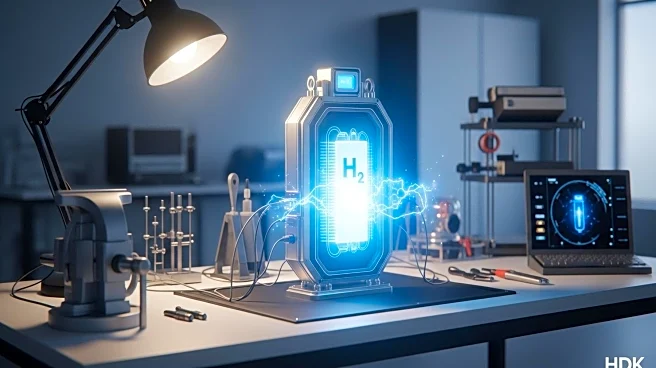What's Happening?
General Motors (GM) has decided to cease further development of its vehicle fuel cell technology, redirecting its focus towards using the current fuel cell stack as a backup power source for buildings and industries such as mining and trucking. The decision marks a strategic shift in GM's approach to fuel cell technology, which has been part of its innovation efforts. The company will continue to produce the existing fuel cell stack but will not pursue new advancements in this area. This move reflects GM's reassessment of its priorities in the evolving automotive landscape, where electric vehicles are gaining prominence.
Why It's Important?
GM's decision to halt vehicle fuel cell development is significant as it underscores the company's strategic pivot towards more commercially viable applications of fuel cell technology. By focusing on backup power solutions, GM aims to capitalize on the growing demand for reliable energy sources in industrial sectors. This shift may impact the company's innovation trajectory and influence its competitive positioning in the automotive industry, where electric vehicles are increasingly favored over fuel cell technology. The decision also highlights the challenges faced by automakers in balancing innovation with market realities and consumer preferences.
What's Next?
GM is likely to explore new opportunities in the industrial and commercial sectors for its fuel cell technology. The company may engage with stakeholders in the mining and trucking industries to expand its market presence and develop tailored solutions. Additionally, GM's strategic shift could prompt other automakers to reassess their fuel cell initiatives and explore alternative energy solutions. The automotive industry will be watching closely to see how GM's decision influences broader trends in vehicle technology and energy innovation.









